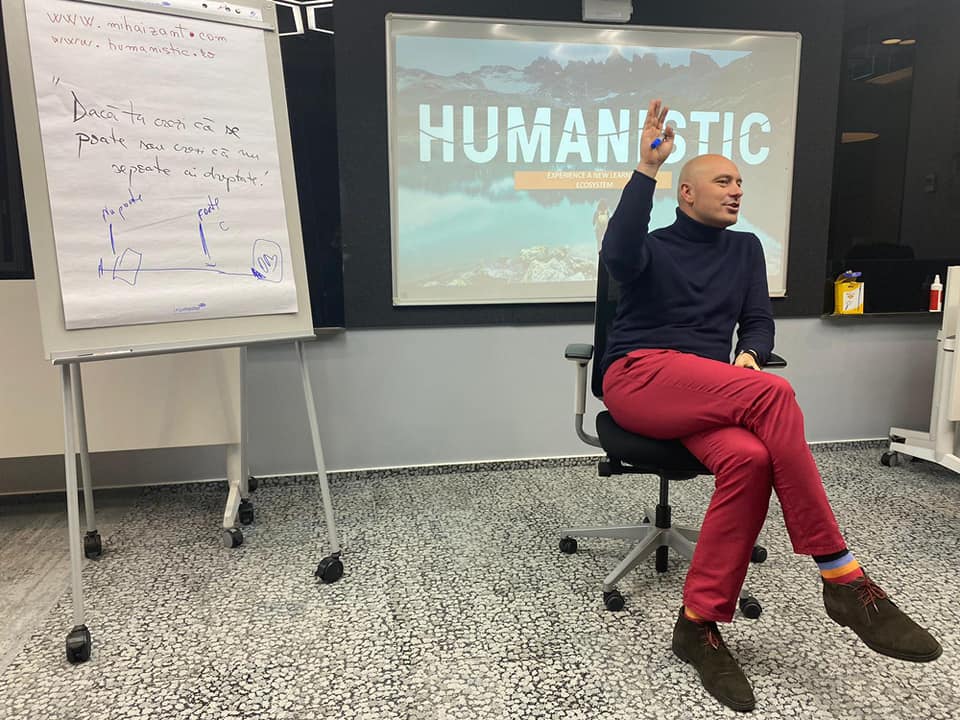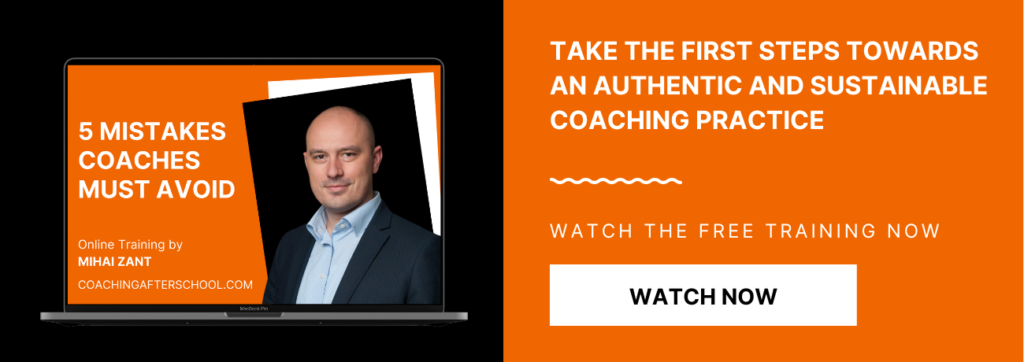I am saying this phrase a lot while working with coaches who start their practice. And, then, I tell them another one: “You need to be simultaneously a car driver & an aware pedestrian in order to safely cross the street on the red light”.
Some of the biggest milestones that coaches must pass in order to deliver more powerful sessions is to trust and follow their intuition. But intuition becomes a powerful instrument only if it’s verified and confirmed with your client (so reflected back) and if it’s applied on top of practical experience in using coaching specific tools. Being a fine observer of human behaviors and patterns can also help a lot.
Now, let’s talk about the coaching business!
Coaching is not a regulated practice in most countries around the world. Therefore, anyone who wants can call himself/herself a COACH. Either if you believe this is normal or not, there’s little we can do about it. The way this competency is getting certified and validated is through Professional Associations like ICF, EMCC and others alike.
And I feel you! This is also frustrating for myself as a graduate and teacher in a respectable coaching school – PriceWaterhouseCoopers Academy – which is also recognized by ICF & EMCC and that follows a thorough competency model for quality insurance. But, not managing these emotions is also highly unproductive. If you are not working for a public institution which has coaching specific regulation responsibilities or working for one of the certifying bodies, let’s just work with ourselves and our beliefs. As we would do in coaching with our clients.
Too many beginner coaches dwell too much time on debating about what’s coaching and what not, what are the differences between therapy/mentoring and coaching, what is deep enough work, what is spiritual enough…
And the only answer is that these lines are blurred! And they will stay so for some time.
Each coach will choose a frame of reference corresponding to personal beliefs at the moment of that choice. This may be the reference given by a Certifying Organization, a role model, a book, the market demand or a self-proclaimed method. Regardless of this choice, this represents an internal & external need for validation.
My primary advice would be to follow a certified school, preferably an ICF one. Especially if you are searching for a competency model and quality assurance.
On the other hand, I will also be the first to say that this is less relevant from a coaching business perspective.
Whether you are doing more mentoring, consulting, advising, counseling, “healing”, spiritual guiding, sports training, nutrition, it is a waste of energy to debate what you cannot really influence. Anytime where there will be a perceived need in the market there will be someone who will fill that void. If you are not doing anything illegal, asking yourself what is the “real” definition for coaching will not help you to address your clients’ needs.
I am seeing a lot of coaches explaining to clients what they should and shouldn’t do together and not listening to what the expressed need is. Similarly, I am seeing plenty of coaches projecting “pure” coaching needs onto clients that are searching for more of mentoring or counseling. Or, that may need a specialized therapist.
So, just bring your whole self to the coaching table and use all what you’ve got and you are. Coaching is just one tool. And when all that you’ve got is a hammer everything looks like a nail!






